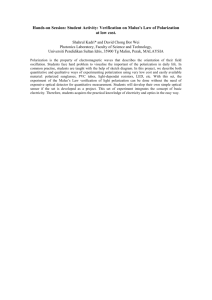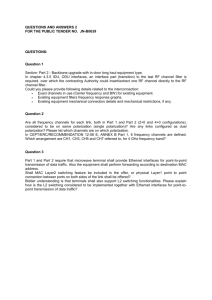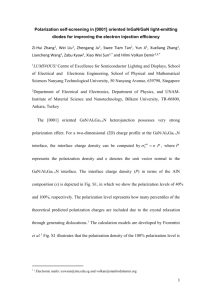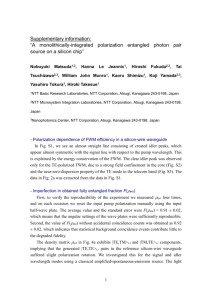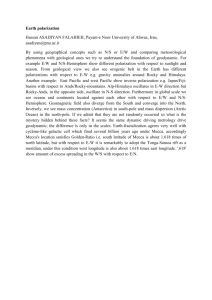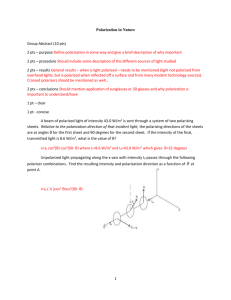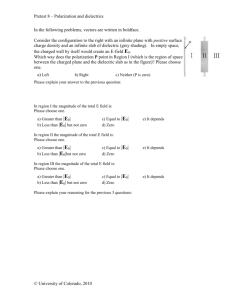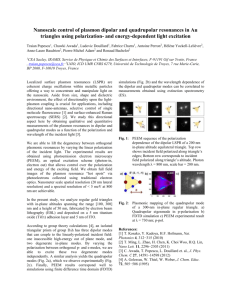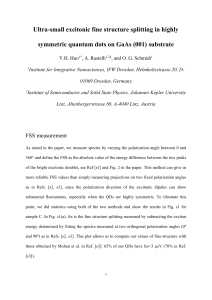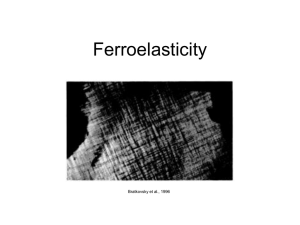Supplementary Information Voltage Control of Metal
advertisement
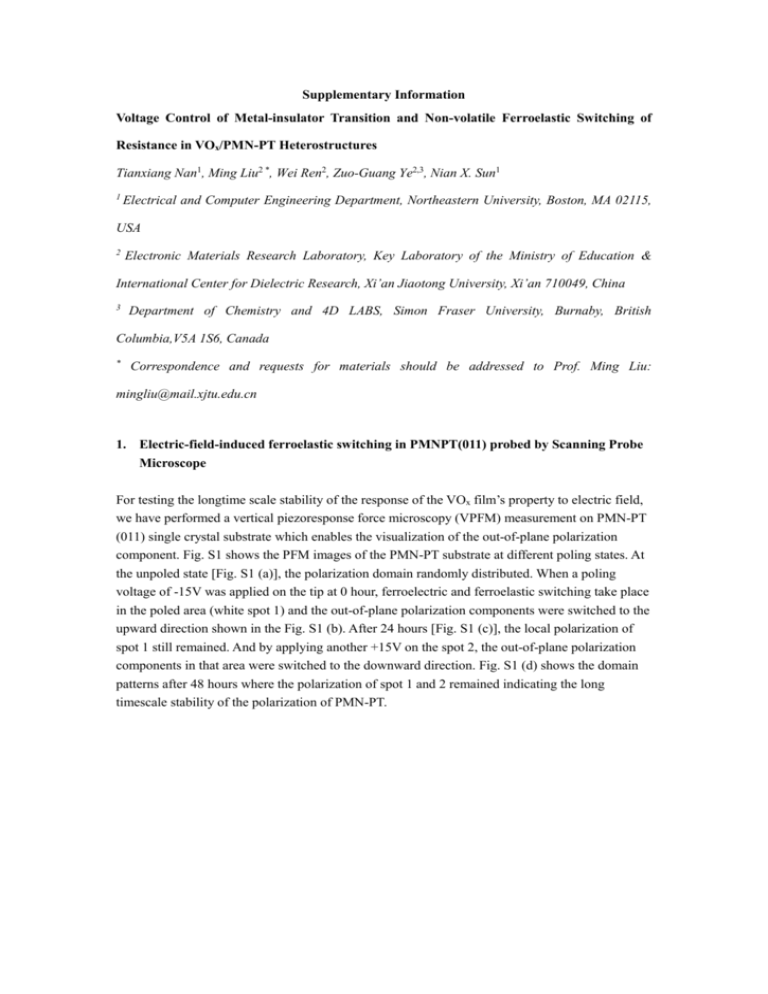
Supplementary Information Voltage Control of Metal-insulator Transition and Non-volatile Ferroelastic Switching of Resistance in VOx/PMN-PT Heterostructures Tianxiang Nan1, Ming Liu2 *, Wei Ren2, Zuo-Guang Ye2,3, Nian X. Sun1 1 Electrical and Computer Engineering Department, Northeastern University, Boston, MA 02115, USA 2 Electronic Materials Research Laboratory, Key Laboratory of the Ministry of Education & International Center for Dielectric Research, Xi’an Jiaotong University, Xi’an 710049, China 3 Department of Chemistry and 4D LABS, Simon Fraser University, Burnaby, British Columbia,V5A 1S6, Canada * Correspondence and requests for materials should be addressed to Prof. Ming Liu: mingliu@mail.xjtu.edu.cn 1. Electric-field-induced ferroelastic switching in PMNPT(011) probed by Scanning Probe Microscope For testing the longtime scale stability of the response of the VOx film’s property to electric field, we have performed a vertical piezoresponse force microscopy (VPFM) measurement on PMN-PT (011) single crystal substrate which enables the visualization of the out-of-plane polarization component. Fig. S1 shows the PFM images of the PMN-PT substrate at different poling states. At the unpoled state [Fig. S1 (a)], the polarization domain randomly distributed. When a poling voltage of -15V was applied on the tip at 0 hour, ferroelectric and ferroelastic switching take place in the poled area (white spot 1) and the out-of-plane polarization components were switched to the upward direction shown in the Fig. S1 (b). After 24 hours [Fig. S1 (c)], the local polarization of spot 1 still remained. And by applying another +15V on the spot 2, the out-of-plane polarization components in that area were switched to the downward direction. Fig. S1 (d) shows the domain patterns after 48 hours where the polarization of spot 1 and 2 remained indicating the long timescale stability of the polarization of PMN-PT. Fig. S1 Out-of-plane polarization components of the different poling states. (a) Unpoled state; (b) 0 hour, -15V on spot 1; (c) 24hour, +15V on spot 2; (d) 48 hour, +15V on spot 3.
